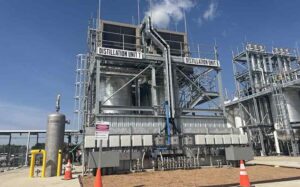Trailblazer critics miss the “big picture”
3rd February 2017
UK: The Building Engineering Services Association (BESA) has voiced support for the new government apprenticeship scheme, claiming critics are missing the “big picture”.
The Institute for Fiscal Studies (IFS) published a report this week in which it claims the target of delivering three million new apprenticeships by 2020 could be “poor value for money”.
The new apprenticeship levy being imposed on large employers from next year is expected to raise around £2.8bn but the IFS report suggests that this will not be used to increase spending on apprenticeships and, as a payroll tax, is likely to lead to lower wages.
The independent think tank also questions the quality of the training that would be delivered under the plans and that the apprenticeship ‘brand’ was being damaged adding that some existing training activity would simply be re-badged as apprenticeships in order to offset costs.
Answering the criticism, the Department for Education claimed that quality was at the heart of all of its apprenticeship reforms. A spokeswoman told the BBC: “We have introduced new apprenticeship standards which are developed by employers themselves and rigorously checked and taken steps to protect the term apprenticeship from misuse helping us to achieve our target of three million apprenticeship starts by 2020 and providing excellent value for money.”

Working closely with employers
BESA maintains that apprenticeships are an essential part of the strategy to tackle the country’s crippling skills gap in vital economic sectors like engineering and construction – and, therefore, the return on investment would be realised over time.
“A vocational apprenticeship is just the first step on the journey to a fulfilling career,” said BESA chief executive Paul McLaughlin. “We are working closely with employers in our sector to develop and deliver apprenticeships at all levels – from initial technician grades right up to degree equivalence.
“We see the new apprenticeship programme as a way of creating career paths that will deliver value for money at each stage and for years to come.”
Claiming that the technical professions have suffered from decades of under-investment in skills and training, Paul McLaughlin said that the new Trailblazer apprenticeships are designed to deliver training appropriate to the needs of employers struggling to find the skilled workers needed to keep up with demand.
“If you are trying to calculate potential value for money, you cannot compare this new approach with what has gone before,” said Mr McLaughlin. “By focussing efforts on professions that are critical to the country’s future development in things like infrastructure and house building, you begin to build a pipeline of talent that will deliver a financial return for decades into the future.
“Don’t forget it is employers who are footing most of the bill, but who are, quite rightly, also reaping the benefit of gaining a suitably skilled workforce. However, it is the country as a whole that sees the real long-term value through improved buildings, infrastructure, services, etc, and of having a more highly skilled employment base.”
Quality checks
The Association also pointed out that the quality of the training was being overseen by a new Institute for Apprenticeships in partnership with professional trade bodies, which were charged with engaging with employers of all sizes to ensure they got the type of apprentices they needed.
Innovations include encouraging the largest employers to ‘farm out’ apprentices to smaller supply chain partners to give them wider experience and also create room for new apprentices to come in.
The government has said that just 2% of employers will pay into the Apprenticeship Levy – those with payrolls above £3m– and that the remaining 98% will receive 90% of the cost of training an apprentice.
“All employers should take advantage of the funding made available by the levy,” said Mr McLaughlin. “It is very much a case of use it or lose it – and it is very important to make sure the money allocated for building engineering remains within our sector. We have a serious skills shortage and this new approach is a welcome and innovative attempt to tackle it.
“Apprenticeships work by boosting economic productivity, growing our skills base and giving millions a leg up on the ladder of opportunity. Over 90% of apprentices currently go into work or further training – and they are not building up student debt along the way,” he added.








